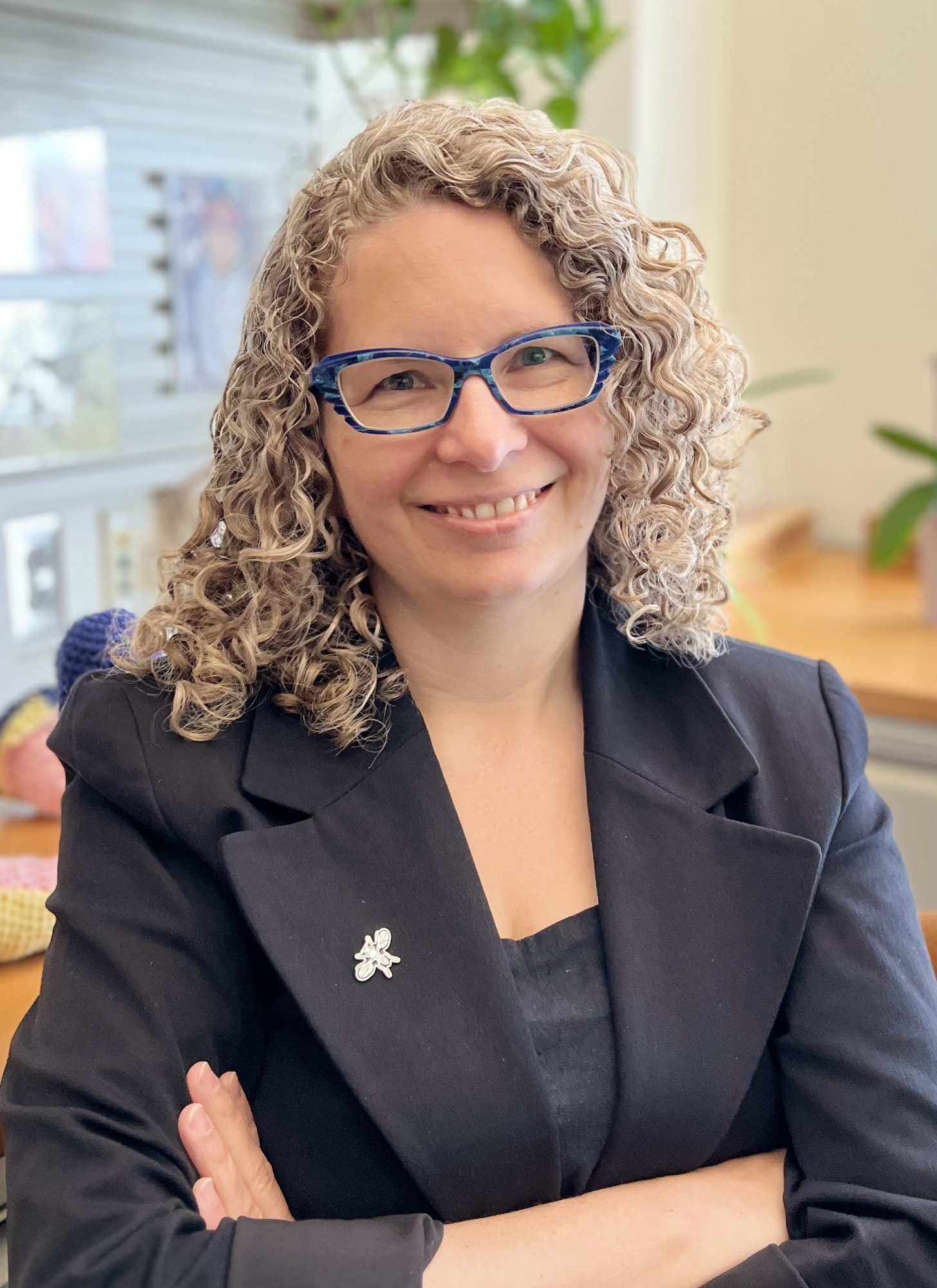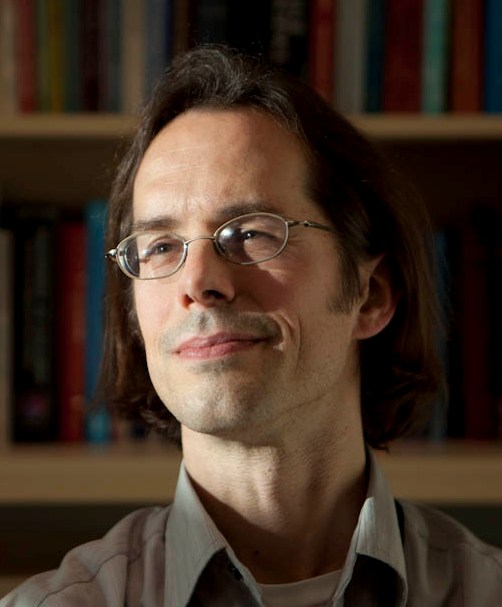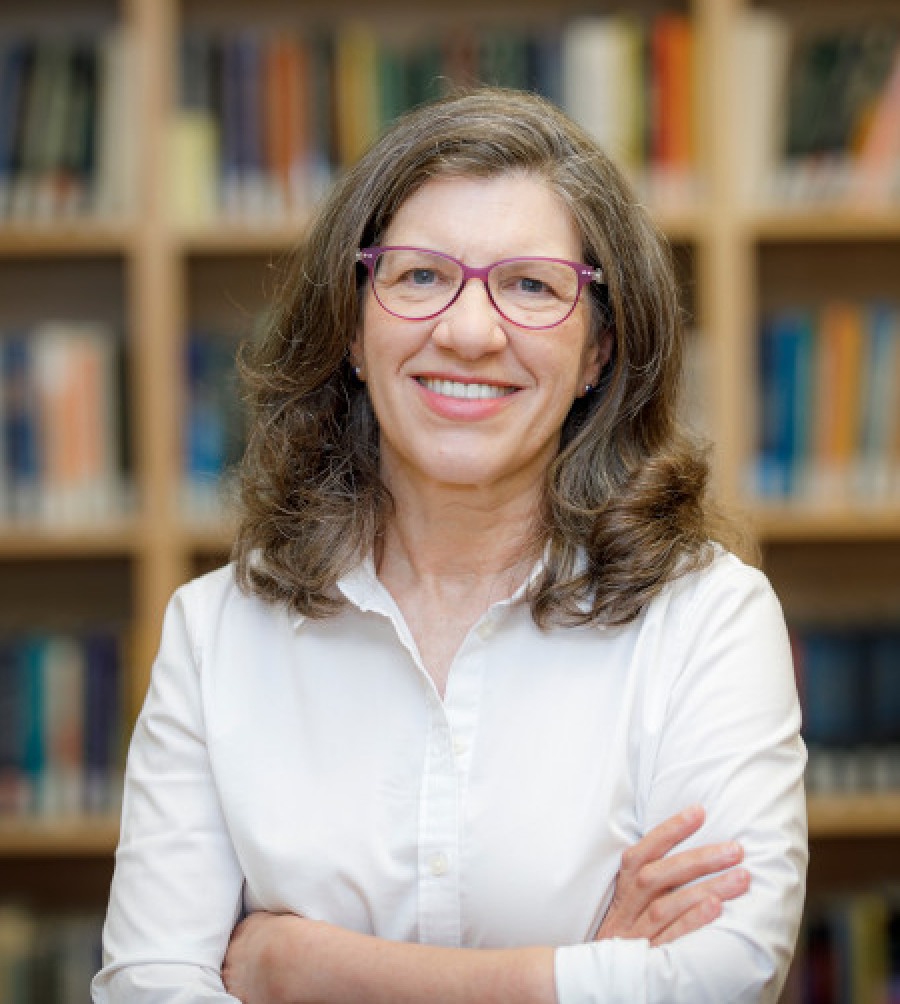Just about every year, Karla Kaun speaks to high school science students in Tumbler Ridge, the coal-mining community in British Columbia where she spent her teen years. Surrounded by towering waterfalls and the foothills of the Canadian Rockies, Tumbler Ridge is so rural it takes Kaun two plane flights and a three-hour drive to get there. That’s why she Zooms in to Mark Deeley’s senior science class at Tumbler Ridge Secondary School.
An associate professor of neuroscience at Brown University’s Carney Institute for Brain Science, Kaun explores the connection between addiction and memory in fruit fly brains, which are remarkably similar to our own. Kaun likes to tell the students that she gets the flies tipsy and then measures how much they remember of that experience. In people, memories of the good feelings that can come from alcohol can lead to cravings, more drinking, stronger memories, then more cravings. In this way, addiction can hijack memory networks, creating a powerful feedback loop that’s difficult to break.

Kaun shares these findings with the Tumbler Ridge students. She talks about the power and pleasure of doing science, her path to an Ivy League laboratory, and the school and community they share. It’s part of Kaun’s work as a brain science advocate, a role she promoted as one of three authors of an op-ed published January 21 by The Transmitter. At Brown, Kaun has found an army of advocacy allies. Researchers affiliated with Carney, the Warren Alpert Medical School and the School of Public Health study alcohol, tobacco and drug use from the level of single genes to national policy and have earned Brown a global reputation for high-caliber, high-impact addiction science, education and policy.
Dr. Bob Swift, a professor in Brown’s Department of Psychiatry and Human Behavior and a long-time alcohol researcher, says the university’s reputation for excellence in addiction science dates back decades. In 1976, Dr. David Lewis, a Brown graduate and internal medicine physician, was recruited from Harvard to create an addiction medicine program at the medical school – one of the first in the nation. That program would, six years later, become the Center for Alcohol and Addiction Studies (CAAS) and eventually become part of the School of Public Health. CAAS is home to one of the nation’s oldest, largest and most successful postdoctoral training programs in addiction research, and Director Christopher Kahler said advocacy is central to the center’s mission.

“Public health researchers need to communicate their work to the public, to practitioners, and to policy makers so it informs decision making and makes an impact,” said, Kahler, a professor of behavioral and social sciences and a professor of psychiatry and human behavior. “We need to demonstrate that the science we do matters. That means getting out of our academic bubbles, which many of us were not trained to do. I’m seeing a greater appetite among our faculty and students for taking on more public roles as communicators and advocates, and we can point to successes in these efforts.”
In their new op-ed, Kaun with co-authors Omar Abubaker, an oral surgeon who lost his son to opioid addiction, and neuroscientist Eric Nestler, make a case that addiction scientists should talk about their work in their everyday lives. Those conversations, they argue, can reduce stigma and influence how drug, tobacco and alcohol use is studied in labs, taught in schools, treated in clinics, and shaped by laws and regulations that can reduce harm and save lives.
“Opening lines of communication within our local communities—with students, health care workers, patients, policy experts or neighbors—will help us understand people’s needs and identify barriers so that we can work to address them,” they write. “Like lawyers learning to present a case to the court, scientists should learn to educate non-scientists about their findings.”
To Kaun, advocacy is a form of science translation, a way to increase the impact of her research. The op-ed is a follow-up to an advocacy panel discussion Kaun took part in at the Society for Neuroscience conference in October 2024 and is part of her long-standing commitment to inform the public about addiction science. Kaun has joined a science podcast, sat for a public radio interview, presented during Rhode Island Brain Week – and even spoke at a Brown-sponsored WaterFire event in Providence.
Kaun said the goal of her advocacy is simple.
“It’s really about communicating that science means hope,” Kaun said. “Or perhaps that science brings hope. It provides us the space to be curious about ourselves and the world around us; it provides treatments and cures and helps us move towards a sustainable world.
“Recently I’ve heard a lot of narratives in the public from politicians and influencers about how scientists are making people’s lives difficult,” Kaun said. “I think it’s time for scientists to provide their own narrative.”
Brown has a long history of addiction advocacy.
In 2009, former CAAS director Peter Monti, while serving as president of the Research Society on Alcohol, played a key role in advocating to keep the National Institute on Alcohol and Alcohol Abuse from merging with the National Institute on Drug Abuse, a move that preserved a unique focus in federal funding for alcohol research. In 2016, Dr. Josiah Rich, led a team of researchers who convinced the Rhode Island Department of Corrections to make available to prisoners three drugs approved to treat opioid addiction – a first in the nation.
Most recently, Brown researcher Jennifer Tidey’s work has made a national impact. President Joe Biden’s proposal to limit the amount of nicotine in cigarettes, which he announced at the end of his term, is based, in part, on Tidey’s research. The associate dean for research and a professor of behavioral and social sciences at CAAS and a professor of psychiatry and human behavior at Alpert Medical School, Tidey has found, in several randomized controlled trials, that reducing the amount of nicotine in cigarettes reduces the amount of smoking across demographic groups — a change in behavior that would limit the harm from tar and other toxic chemicals in cigarettes.

While Tidey doesn’t see her work as advocacy, she is pleased that it could spark change. “People who know the science need to engage with the public,” Tidey said. “We can’t have tobacco companies controlling the conversation.”
Mark Deeley, the Tumbler Ridge high school science teacher, said Kaun’s work with students has made a positive difference — especially for teenage girls considering science as a career.
“Karla’s presentation is grounded in humility and the students pick up on this immediately,” Deeley said. “They see her as one of their own, and given that she has accomplished so much and speaks on their level, students see her as a role model who gives them the permission and courage to go after the lives they want.”